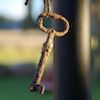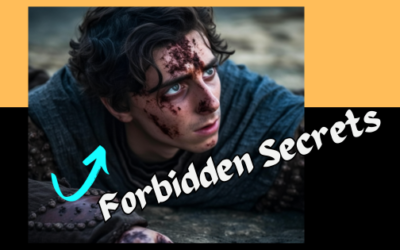Below are my ANSWERS to READER QUESTIONS about uncomfortable elements in the book. (See general Ethical and Situational Themes).
Only read on if you need to know these issues for the sake of your children.
It WILL spoil the story.
Alternately, return here AFTER reading the book to get your burning questions answered.
Q 1) Was Marcellus sexually assaulted?
Q2) Why did the mother allow the children to journey to Constantinople alone?
Q3) Why did Byziana return to Antioch?
Q4) How could honorable Gaius Justus abandon his children?
Q5) Did Gallus get away scot-free?
Q6) Why didn’t they copy the Scripture scrolls?
–with specific spoilers–
- Answer: Yes, this is what happened. Sexual (or physical) assault of some sort. Nowhere in the book does it explain the details. The reader’s question quoted pretty much the only specific details given about the incident. It was a quick scene about “something bad” happening, though his guilt and shame and anger fuels Marcellus throughout the book until he finds forgiveness and love for his enemies.
- Is this appropriate in a “children’s book”? No. But it is a topic other YA books discuss. And unfortunately is a topic found on social media. Thus the rating 12 to adult. That said, reviewers have said that their young (6 year old) children have eagerly looked forward to the next chapter of Trunk of Scrolls each night. So Marcellus’s injuries can be innocently understood.
- Fact of the Matter: I’m sorry to say that this is also historically verified as happening in Antioch at the time. Chrysostom wrote specifically against these vices. There is nothing new under the sun.
- Answer: Fourteen-year-old Byziana, who is determined to walk to Constantinople, has neither mother or father to guide her. Her mother has died, her father has disappeared. Her semi-guardian is her mother’s cousin, Lady Aemelia (Marcellus’s mother). She wants to go to her father in Constantinople, is persuaded by her father’s steward, Gallus, that she is needed in Constantinople and should leave at once.
- Because her father “calls her,” and because the second earthquake has destroyed her home and made her terrified to stay in Antioch, she does not bend to obey her “aunt.” But presses forward willfully and foolishly. The aunt has no way to restrain her, and tries to believe the father has called them, so instead she sends her sixteen-year-old son, Marcellus, to keep them safe. Gallus, technically the family’s guard, sends a strong servant, Trolius, along with them to help protect the party.
- In the same way that Syrians, after this recent war destroyed their cities, left their home on foot, our small family from Antioch (in Syria) joins other families abandoning the city, all hoping to find a new future in Constantinople.
- Fact of the Matter: The path they took was called the Pilgrim’s Way because in the early church days people were walking that road to get from their homes to Jerusalem as a pilgrimage destination. The spots that our characters stayed were famous for being stop-over spots for these pilgrims and merchants.
- For additional information on this journey read Travels of Egeria. Egeria was single woman pilgrim who traveled this path on her own in the early 380s, whose anecdotes were very instrumental in my understanding of this journey. Interestingly, she actually celebrated Christmas in Jerusalem during this pilgrimage, showing that the holiday was an early development and already structured by the time of Constantine.
- Answer: This is where wisdom catches up with Byziana. She is scared-to-death for what she has done. As a stubborn, independent young woman she had set off on an “nothing can hurt me” journey but realizes how close she brought the family to death.
- When Marcellus and her brother Justin disappear, she is still not very close to Constantinople. At this point she is not even a third of the way there. She has no escort and no money. When she finds a party of travelers returning to Antioch, she high-tails it home, with her life and the life of her sisters. She wants what is safe and known, even in a broken world, and not the unknown and dangerous.
- Answer: Gaius Justus returned to Constantinople in search of honor and fame, rubbing shoulders with the rich-and-famous. He found out his family was destitute after he had already lost everything. He was ashamed and penniless. His lack of providing for his family was covered-over by Aemelia who pretended he had been sending money.
- This element of the story–poverty, debt, slavery, injustice, destitution–is a demonstration of the earlier saying, “your view on Chalcedon determines everything, even the god you serve.” Everyone THOUGHT Gaius Justus was honorable, but his actions throughout the story showed he did not really love others, just loved what he got out of it.
- Gaius Justus was a worldly man, selfish until the events at the end of the story. He chose to believe what “everyone else” believed. He even commanded his wife Sophia to just let other people think for her and to fall in line. We see from this that he did not care for truth or for God or for Scripture. His god was honor itself.
- Answer: One of the issues we suffer through in life is bad men who get-away with evil. It hurts, for a long time, when people go scot-free though they’ve done great wickedness to us.
- Understanding God’s forgiveness means finding meaning in the promise of future recompense of God. No one will get away with it. As with us, we sometimes never know what happens. The loose-end is left swaying for Marcellus and Byziana–though at this point so many other things have happened that what Gallus did was almost minute.
- The Gallus / Indulf questions will be cleared up in Dragon over Constantinople (Trunk of Scrolls II).
- Answer: Simply put, at this point, he was afraid to break an unspoken “law of God” to copy Scripture without authorization by the Church.
- Fact of the Matter: Reading Biblical scrolls by the laity was actually against Byzantine law, and the copying of them was also forbidden by law except by those who had special training–ie: in the monasteries.
- The Trunk of Scrolls characters, including Marcellus, wish they could make copies, they want to give copies, they wished they had been brave enough or foolish enough to break the law.
- This family was the ONLY family with a Bible. Scripture was becoming restricted, all the things that were ABOUT to go wrong with the Church were starting to go wrong and limits put on Scripture is where it all began. So the family’s desire to preserve Scripture was a pre-Wycliffe/Tyndale/Luther call for Reformation of the Church.
- These are freedoms we have in the 20th century. We so easily send people Bible verses in all forms of social media, because we CAN. We have been given this great gift: the whole Bible as close as our smartphone, a world of media to employ to get copies into the hands of those who have never heard.
- We are so blessed to have full access to and free use of His Word, which was not true for any generation as much as ours today. It should remind us, that to whom much is given much is required. May your “Trunk of Scrolls” never get dusty or forgotten in a corner. May it be your delight.




